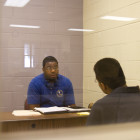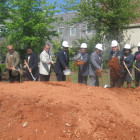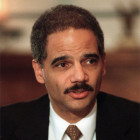Who knew that an innovative initiative that is showing dramatic success in decreasing the number of children incarcerated in Clayton County was actually sparked by a “failure” in the system. So goes the story of how Juvenile Court Judge Steven Teske was inspired to create the Finding Alternatives for Safety and Treatment (FAST) panel, a program that statistics show is having a major impact in the county.
Teske says the case of a young man now serving a life sentence for murder actually prompted the idea for to him to start the program. “The system had failed him on so many levels; by the time he’d gotten to the seventh grade he was reading on a first grade level and no one had ever intervened,” recalls Teske, of the teen who, after years of run-ins with the law, ultimately gunned down a security guard during a botched robbery. Several studies have linked lack of education to criminal behavior. Teske firmly believes that if school leaders and social service agencies had intervened earlier, he would have evaded the very gang life that ended up taking away his life and that of an innocent man.



